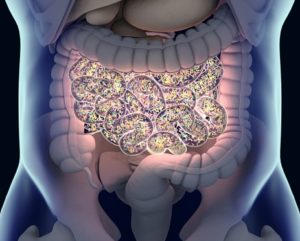Ulcerative colitis (UC) and irritable bowel syndrome with diarrhea (IBS-D) are chronic gastrointestinal conditions associated with high rates of anxiety and depression. A recent study found significantly higher anxiety levels among patients with IBS-D compared to those with UC. Anxiety was particularly prevalent among actively employed IBS-D patients who had religious beliefs or caregiving responsibilities. In patients with UC, higher anxiety and depression rates were associated with longer disease duration, higher educational levels, and having dependent children. Treatment with anti-TNF-alpha therapy (Infliximab) appeared to reduce depressive symptoms in patients with UC.
These findings emphasize the need for routine mental health screening in UC and IBS-D patients due to the substantial impact of psychological factors on their quality of life and disease management. Recognizing the specific social and demographic risk factors identified—such as active employment, caregiving, religious beliefs, and higher education—can facilitate targeted mental health interventions, improve treatment adherence, and enhance patient outcomes.
Reference: Onisor D, Avram C, Ruta F, et al. Burden of Common Mental Disorders in Ulcerative Colitis and Irritable Bowel Syndrome Patients: An Analysis of Risk Factors. J Clin Med. 2025 Jan 14;14(2):499. doi: 10.3390/jcm14020499. PMID: 39860505; PMCID: PMC11766210.









